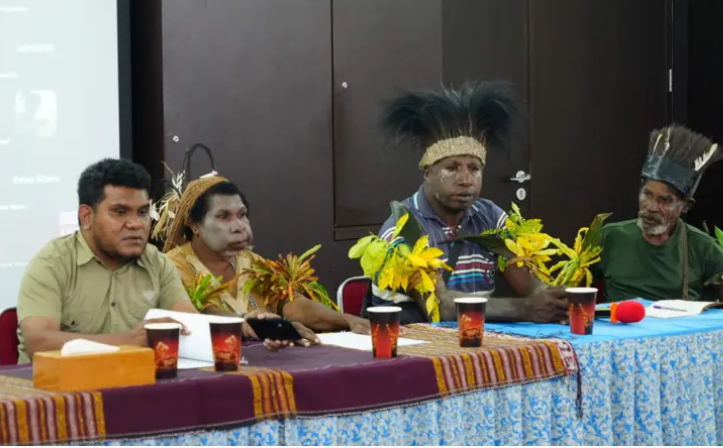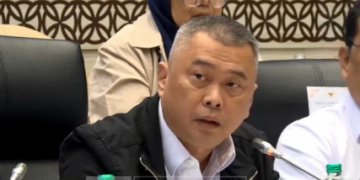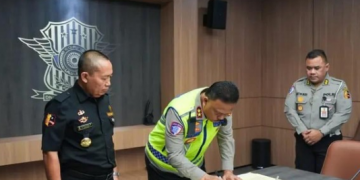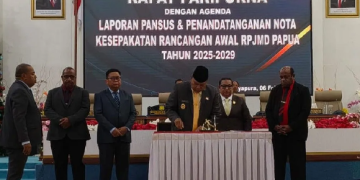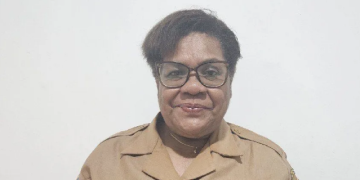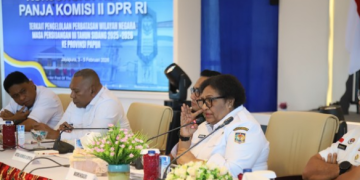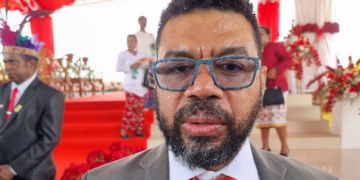Papuaaround.com – A group of Indigenous representatives from Merauke, South Papua, has urged the Indonesian government to grant access to nine United Nations special rapporteurs to visit Papua. Their request follows mounting concerns about alleged environmental destruction and human rights violations linked to the National Strategic Project (PSN), particularly the Food Estate development in the region.
The appeal was voiced during a press conference held by Solidaritas Merauke at the Communion of Churches in Indonesia (PGI) office in Jakarta on Tuesday, June 17. Rufina Gebze, a member of the Marind Anim Indigenous community, delivered a poignant testimony about the devastating impacts the project has had on her village.
“We are calling on the UN to come and witness how our forests, our rights, and our lives are being taken away by force,” said Rufina, who hails from Onggari village in the Malind District. According to her, nearly the entire village has been designated for sugarcane plantations under the PSN initiative. “They left us with just one hectare of land,” she added.
The PSN Food Estate program, initiated in Merauke, is seen by many locals as a continuation of the controversial Merauke Integrated Food and Energy Estate (MIFEE) project, launched during President Susilo Bambang Yudhoyono’s administration in 2010. In 2023, the government classified the Merauke area as a Special Economic Zone (SEZ), allocating approximately two million hectares for food and energy production. The designated land overlaps with territories belonging to several Indigenous communities, including the Malind, Yeinan, Maklew, Khimaima, and Yei peoples.
Indigenous voices from other affected areas—such as Vincen Kwipalo of the Yei Nan, Aloysius Buja from Wambon, and Julius Tenot of the Muyu—have echoed similar concerns about land appropriation and cultural loss.
Despite efforts by affected communities to resist the project, they claim their objections have been repeatedly dismissed. Rufina explained that representatives from the implementing company visited her village four times for outreach, but villagers—young and old alike—consistently rejected the plans.
“If we, the elders, give up our land now, what future is left for our children and grandchildren?” she asked.
The UN special rapporteurs previously sent a formal letter on March 7, 2025, addressed to both the Indonesian government and PT Global Papua Abadi, the company involved in the Merauke PSN project. The letter sought clarification regarding potential human rights and environmental violations. The government issued a response on May 6, 2025, denying the allegations. However, according to Solidaritas Merauke, the company has yet to respond.
Speaking on the issue, Human Rights Minister Natalius Pigai stated the government is promoting human rights-based development through new legal frameworks, including presidential and ministerial regulations. Yet, he did not directly address the community’s demand for UN access.
Another community member, Yasinta Gebze, shared a similar account. “Ten community sites, from forests to sacred places, have already been destroyed,” she said. “We’ve lost everything—nature, animals, water. Even the fish are gone, and animals like deer, pigs, kangaroos, and cassowaries have disappeared.”
For many, the forest is not just a resource but the very foundation of life, tradition, and identity. “Destroying our forest is the same as killing us,” Rufina stated solemnly.
As the PSN project progresses, Merauke’s Indigenous communities continue to demand international attention and intervention. They hope that UN special rapporteurs will be allowed to witness firsthand the challenges they face and the irreversible changes threatening their ancestral lands.

